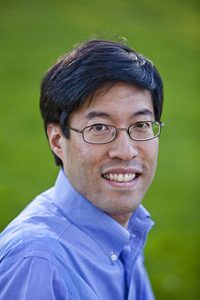by P.J. Smithington

Is the American Academy of Pediatrics being dishonest when they tell us that they will be hosting a “debate” on vaccine exemptions at their upcoming conference in Chicago?
Their own policy is pretty iron-clad.
Last year, the AAP took the draconian, unethical, and entirely unscientific position of actually telling state legislators to remove parental/individual rights to accept or reject invasive medical interventions.
“The AAP recommends that all states and the District of Columbia use their public health authority to eliminate nonmedical exemptions from immunization requirements.”
If we were talking about the US vaccine schedule of the early 1960’s—polio, diphtheria, pertussis, tetanus—that might not be so terrible. But the 2017 vaccine schedule calls for an astounding 36 doses of 10 vaccines targeting 14 illnesses, given as 26 separate shots by the age of 12 months.
Some of those vaccines are more dangerous than others, with disturbingly high rates of reported serious, even fatal adverse effects. Even adults have had severe reactions.
Likewise, some of the targeted illnesses, like chicken pox, mumps, and rubella, have historically been extremely benign in children, while others, like hepatitis B, are primarily transmissible by tainted needles or unprotected sex, making the risk/benefit ratio of the vaccine much less positive than the manufacturers would like us to believe. And most of us know by now that the flu shot’s efficacy is similar to that of a placebo.
Yet the AAP told state legislators to mandate all of the vaccines, regardless of efficacy or safety.
Given this recent history of rigidity, many are wondering if the debate on vaccine exemptions “Vaccine Exemptions for School: Personal, Religious, All, or None?” at the upcoming AAP conference is for real.
It doesn’t look like it.
The AAP’s Bait and Switch
It’s BILLED as a debate in their newsletter:
“The issue will be debated by Richard Pan, MD, MPH, FAAP, a member of the AAP Council on School Health, and Aviva Katz, MD, MA, FAAP, immediate past chair of the AAP Committee on Bioethics, during a point-counterpoint session titled “Vaccine Exemptions for School: Personal, Religious, All, or None? (D2044).” The session will be held from 8:30-9:30 am Sunday, Sept. 17.”
But on closer inspection, we can see that both “debaters” actually hold the same position—that those targeted for injection have no right to decline or even delay, regardless of the actual risk/benefit ratio.

We know Dr. Pan’s position from the bills he has introduced in California; according to his FaceBook posts, he is even impatient with parents seeking medical exemptions for at-risk children. We were hoping that Dr. Katz might have a more nuanced view.
Dr. Katz is first quoted as, “There is a place for personal exemptions from state vaccine requirements,” and that certainly sounds promising. But keep reading, and she gives a glimpse of a completely different position with her statement,
“I will be taking the position that decisions about proceeding with childhood vaccination fall within the spectrum of medical decision-making that we allow families.” (italics mine)
And with that sentence, we have lost all hope that she has anything close to a balanced perspective.
Whose body is it, anyway?
“…THE MEDICAL DECISION-MAKING THAT WE ALLOW FAMILIES.”
By the italicized wording, it’s clear that she believes that all medical decision-making is already in the hands of the doctors; any decision-making made by families will be generously “allowed” them by doctors.
That’s chilling, particularly from the director of University of Pittsburgh’s Consortium Ethics Program, and the most recent chair of the AAP Committee on Bioethics.
Actually, Dr. Katz favors making exemptions even more difficult to obtain.
She believes in “linking exemptions to receiving education,” which effectively removes the right to public education from those who might choose to delay or even refuse vaccines for a variety of valid reasons, such as poor vaccine efficacy, high rates of reported adverse reaction, vaccine manufacturers with a strong history of unethical actions, vaccines with a complete lack of robust safety studies, and so on.
Apparently, Dr. Katz seems to believe that your child’s right to receive a public education and become a functioning part of our society is secondary to the right of doctors to mandate flawed-but-highly-profitable medical interventions.
What happens to the families of working parents when their children are denied access to daycare? What happens to the child when he or she is denied access to education and extracurricular activities? Are these…disadvantages?
What if you want to learn more about vaccines before we decide?
Good luck with that.
Even reporters are having difficulty getting their questions answered.
What options do you have?
You could try speaking to some of the AAP doctors. However, this has not been going particularly well.
I personally know several people, including doctors, scientists, and parents, have attempted to contact Dr. Katz, noting her interest in medical ethics, in hopes of a chance to discuss the ethics of vaccine mandates. When there was no response, one parent called Dr. Katz’s office, who put her through to voicemail, which message said, “Feel free to leave a message or call my cell phone, xxx, xxx-xxxx.”
So this parent, we’ll call her “Jane Doe,” called the cell phone number, and Dr. Katz graciously answered.
As soon as Ms. Doe identified herself by name, Dr. Katz interrupted and told Ms. Doe that if she was seeking a medical exemption, that she should contact her own doctor for that. Ms. Doe immediately assured Dr. Katz that she was NOT looking for any kind of exemption from Dr. Katz, who then informed Ms. Doe that in the upcoming AAP conference, she will NOT be representing people who want exemptions and that she believes that there should be way fewer medical exemptions, almost none.
Apparently, in addition to being unaware of international standards on medical ethics, the AAP has its very own definitions of the terms “debate” and “ethics.”
But we already knew that.
Meanwhile, Dr. Katz apparently refused to even listen to the concerns of those opposed to limiting exemptions. How ethical is it to dismiss an opposing position when you refuse to hear the reason for that position?
UNESCO May Have the Solution
Many groups advocating for the right to medical autonomy have cited the 2005 UNESCO Statement on Bioethics and Human Rights.
Article 6 of this document is about consent, and section 1 reads:
“Any preventive, diagnostic and therapeutic medical intervention is only to be carried out with the prior, free and informed consent of the person concerned, based on adequate information. The consent should, where appropriate, be express and may be withdrawn by the person concerned at any time and for any reason without disadvantage or prejudice.”
Withholding access to a free public education is indeed a disadvantage. Being denied access to medical care, which is happening to more and more unvaccinated children, is also a “disadvantage.”
Didn’t we learn this already in this country?
Further on, section 3 states:
“In no case should a collective community agreement or the consent of a community leader or other authority substitute for an individual’s informed consent.”
One has to wonder if UNESCO is currently aware of the AAP and how it is egregiously violating the principle of informed consent.
More Questions, But Not for the AAP
Our questions are for YOU—our friends, our neighbors, and our colleagues. Please ask yourself the following:
- When faced with an industry claiming that their product is safe, vs. reports of major problems, how many reports does it take before we start to believe that problems are real?
- Do we only believe that the product is unsafe if it’s our own child who reacts to it? Do we deny that a child had an anaphylactic reaction to peanuts if our own child eats PBJs every day with no problem?
- At what point will we stop allowing industry representatives to make our medical decisions for us and for our children? Must it take our own child’s reaction before we say “no?”
- How many serious adverse reactions are too many? 1%? 10%? 49%? 51%? Again, is it only “too many” after it’s our own child who becomes collateral damage?
- How should we as a community handle things when government and industry collusion threatens our most basic rights?
- Are you aware that both government and industry employ marketing experts whose JOB is to deflect the focus onto the people criticizing the industry’s products, and try to convince you that the critics are the ones threatening your rights? Think about that for a while.
While you’re at it, contact your local legislators and discuss these issues with them. You might as well contact President Trump and Vice President Pence. Perhaps this is an issue that could unite both parties.
Contact President Trump here
Contact Vice President Pence here
And finally, we suggest that you contact UNESCO. Their statement above was clearly worded, and is worth repeating: In no case should a collective community agreement or the consent of a community leader or other authority substitute for an individual’s informed consent.
The U.S. permanent representative to UNESCO is Mr. Chris Hegadorn. Acting Executive Director is Mr. Paul T. Mugai. Their contact info is here
Please let all of them know that the medical community in whom we placed our trust is now abusing it, at the behest of the most powerful industry in the world.

